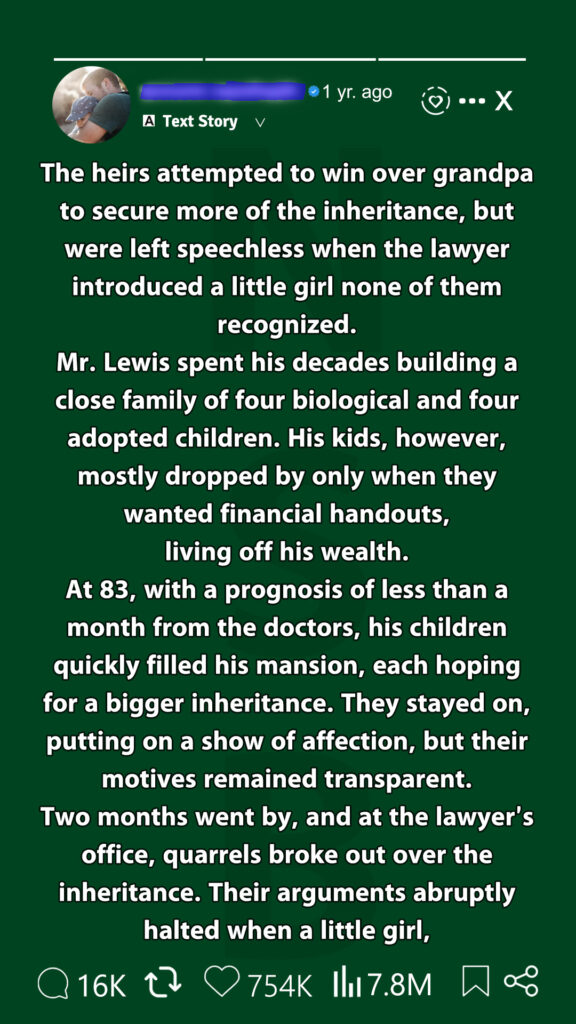Mr. Lewis had lived a life of quiet generosity. A self-made man who rose from poverty to build a business empire, he was more than just wealthy—he was a father to eight children, four biological and four adopted, and a foster parent to many more. His late wife used to say, “You always have room for one more,” and he lived by that mantra, opening his heart and home to anyone in need.
But as the years passed, the warmth of his family faded. His once-bustling home grew silent. Visits from his children became transactional. They came not for love, but for money. “Dad, I just need a little help,” his eldest son would say, eyes avoiding his. His daughter Olivia echoed the same tune, asking for school fees, car repairs, and more. The grandchildren, too, saw him as a walking ATM—appearing only during holidays, their eyes scanning for signs of inheritance.

At 83, Mr. Lewis received a terminal diagnosis. One month to live. He didn’t panic. Instead, he made a call—to every child and grandchild. Within hours, they arrived, not out of grief, but anticipation. They showered him with attention, brought gifts, and played the role of devoted family. But Mr. Lewis saw through it all. Their affection was rehearsed, their kindness conditional.
Among the crowd was a quiet presence: Lily, the daughter of a former foster child. She wasn’t related by blood, nor did she expect anything. She simply came to read to him, bring him tea, and sit in silence. Her kindness was uncalculated, her love sincere.
When Mr. Lewis passed, the family gathered for the reading of the will. The room buzzed with expectation. They imagined mansions, stocks, and trust funds. But the lawyer’s voice cut through their fantasies.
Mr. Lewis had left the bulk of his estate—not to his children or grandchildren—but to Lily. The girl who had shown him genuine care. The jaws of his heirs dropped. Murmurs turned to outrage. “She’s not even family!” one shouted.
But the lawyer continued. Mr. Lewis had written a letter to accompany the will. In it, he explained his decision:
“To those who came only when they wanted something—I saw you. I forgave you, but I could not reward you. To Lily, who gave without asking—I saw you too. And I want the world to know that love, not blood, is what makes someone family.”
The letter ended with a quote from his wife: “You always have room for one more.” And in that moment, Lily became the one who truly carried his legacy.
The children left in stunned silence. Their schemes had failed. Their inheritance was gone. But Mr. Lewis had given them something more valuable—a final lesson in humility, love, and the cost of conditional affection.


